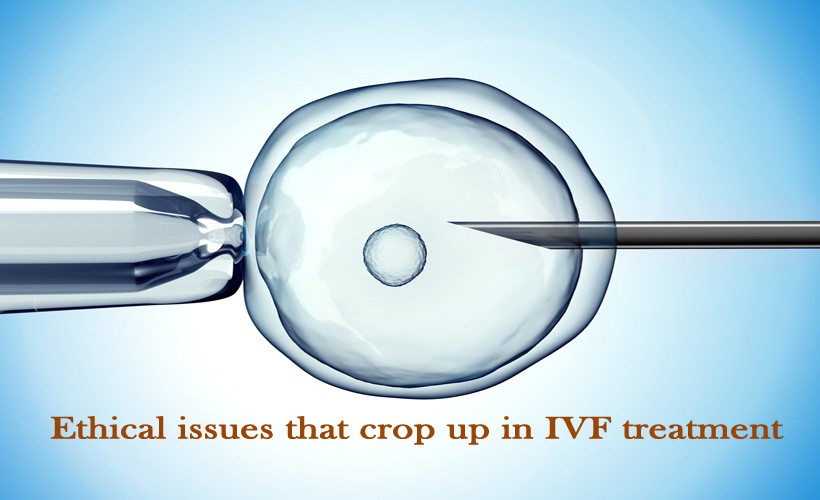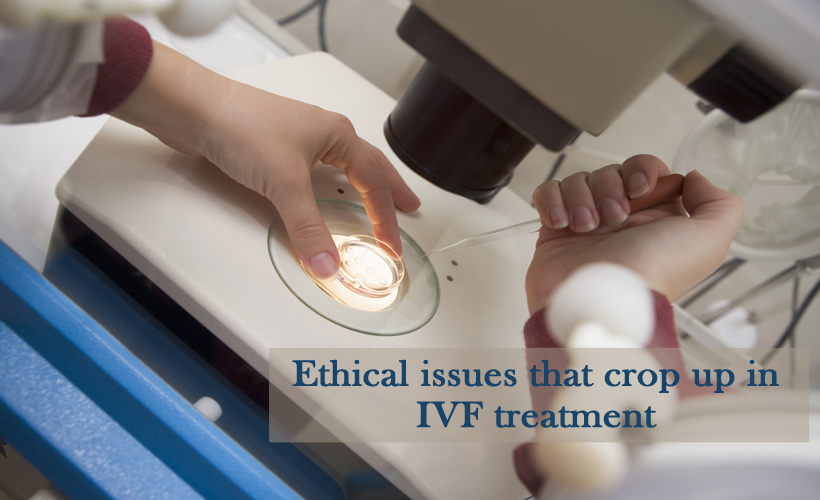In any form of medical treatment, there are always medical issues that tend to crop up. As a patient, one has to be aware of these ethical issues and usually, the physician informs the patients. The concerned physician has to follow these ethical norms while administering the medicines and performing the IVF treatment.
What are these ethical issues?
There are three elements to consider with in vitro fertilization:
- First, the well-being and best interests of the child, even though he or she may be an embryo at the time.
- Second, some people think a child will solve their marital problems. The stresses and uncertainties of in vitro fertilization can further strain a marriage. Clinic staff members should be sensitive to this issue as a way of helping to avoid complications later.
- Third, how we resolve the status and fate of the frozen embryo and also on whom the disposition right in order to consider the abortion right as to be taken into consideration. Disposing of the frozen embryos is also a major issue to reckon.
- Finally, the focus is on stress factor. This is not really a direct ethical issue but nevertheless is an issue that cannot be ignored. The couple has to receive proper information. Stress coupled with frustration has to be avoided as the couple may feel that way at times. top 10 ivf clinics in hyderabad
 Other moral issues of IVF:
Other moral issues of IVF:
- The creation of the child is outside the womb can be man-made devices as a sperm and a harvested egg are combined.
- Second, many children (embryos) are created and some of them are frozen for later use while several of them are placed in the mother’s womb. The survival of these embryos is at low ebb.
- On the whole, multiple children are created, thus knowing that most of them will not live. Some physicians only place 2-3 embryos in the mother, hoping that one or all of them will survive. Other IVF physicians do place more embryos in the mother, and if too many of them live, then they have to abort the “extras” and leave a more “manageable” number of embryos in the womb.
- The frozen embryos have an uncertain fate. Some of them remain frozen for an uncertain period of time, and, therefore, children that have been created are then frozen. Does it seem right to create a life and then leave it? Some of the frozen embryos may be thawed later for a repeat cycle of IVF, and most do not survive. In some cases, the embryos are donated to other couples or some may be donated for research (i.e.: killing them in the name of scientific study).
- The overall problem with IVF is that it destroys life as it creates life. Meaning, the chance of one child surviving carries with it the necessity of many other children (embryos) having been created and then dying. So for the one surviving child, many other children have been given life (combining sperm and egg) with the knowledge that most of them won’t make it.
- The possibility of wrong being done to the pre-embryo: The pre-embryos to be transferred into the woman’s uterus depend upon the chances of fertilization and are related to the age of the woman. One requires the adequate number of pre-embryos to conceive. Those that are not required usually are frozen.
- Embryos that are not really transferred onto a woman’s uterus can be used for research purposes or even destroyed. Embryos in the woman’s uterus may be destroyed by the selective pregnancy reduction. In such situations, the embryonic development gets stopped by the respective action of a physician with of course the likely consent of the couple. Is it possible that the destroyed embryo has been wronged? This question arises. In case the embryo is considered to be a human being with the usual rights normally associated with the termination of its development that can be considered unethical. In fact, it is more of a murder and can be unethical.
- Science does support the view that human life actually begins at the time of conception. Some are of the view that that the pre-embryo is a person who does possess rights from the time of conception.
- These are ethical issues but yet many opt for the IVF treatment as the need and desire to have child is felt and such issues are usually made aware of but one need not be too unconcerned about them.
Read more about: best infertility center in Hyderabad

